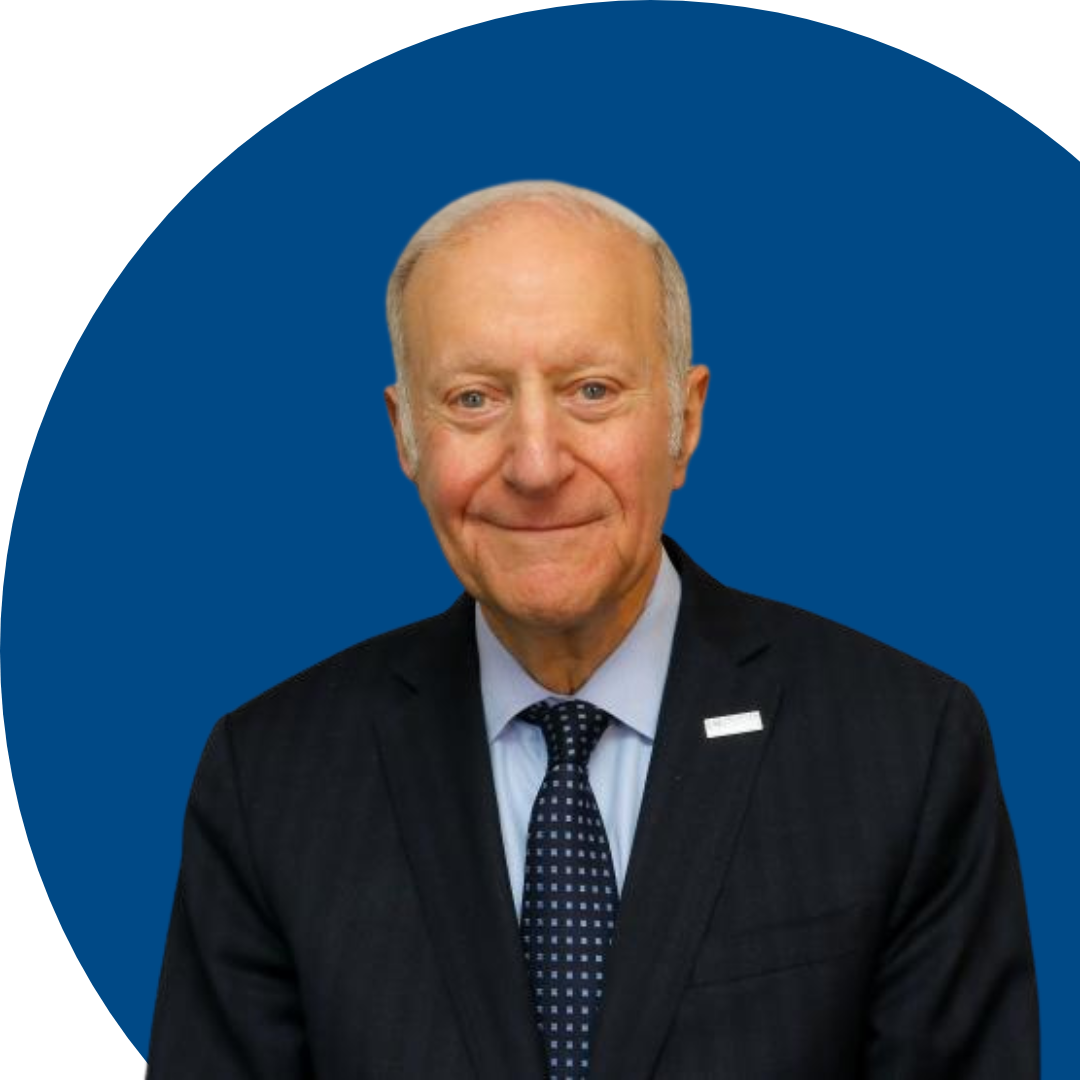A Message from Our Chairman: Upholding the Promise
by John Levi

Every year in this message, I highlight the extraordinary work that LSC and its grantees have done in the previous 12 months as we pursued our vital mission.
This, however, is no ordinary year. It is an LSC milestone, our 50th anniversary, and should be viewed through a longer, more historic lens.
Five decades ago, lawmakers on both sides of the aisle decided that the country needed a national network to help Americans navigate an increasingly complex civil justice system that was created by lawyers, for lawyers.
During these past 50 years, LSC has developed that network of civil legal services providers covering the entire country — 130 grantees with more than 900 offices and over 10,000 lawyers. It is easy to take this network for granted, but it is a major civic achievement and forms the backbone of America’s civil legal services system.
These lawyers at LSC grantees are the true heroes of this American success story, maintaining this national civil legal services network at some of the lowest pay in the profession and facing the frustration of having to turn away so many for a lack of resources.
It requires tremendous commitment to mission, and it has transformed lives.
In fact, during these 50 years, LSC grantees have helped nearly 75 million low-income Americans and families with their civil legal needs.
During this 50th year, LSC launched an effort called Protecting the Promise to help raise awareness of these challenges for Americans who cannot afford an attorney and the importance of access to justice.
Our outreach campaign has generated more than 150 earned media stories, op-eds and interviews; hundreds of audio ad airings; and millions of social media and ad impressions. More than 7,400 advocates have signed a pledge to support LSC and civil legal services.
We have also convened significant forums on access to justice across the country.
More than 550 people attended the flagship 50th anniversary event in Washington, D.C. in April, featuring Chief Justice John G. Roberts Jr., Attorney General Merrick B. Garland, former Secretary of State and former LSC Board Chair Hillary R. Clinton, and best-selling author and LSC Leaders Council member John Grisham.
As a part of this 50th anniversary initiative, LSC released the results of a Harris Poll about civil legal issues, which were unsettling to all of us, even as they are hardly surprising. This survey found that more than half of Americans (56%) mistakenly believe they are entitled to free legal representation if they cannot afford a lawyer for all civil matters, and 18% are unsure.
The poll also showed that 59% of people who experienced a civil legal issue within the past three years did not seek out legal help from an attorney who could have been pivotal in resolving their issue.
This poll confirms and unfortunately deepens the findings of LSC’s 2022 Justice Gap Report, which revealed that low-income Americans do not receive any or enough legal help for 92% of their substantial civil legal problems.
Thirty years ago, Congress appropriated $400 million for LSC, and while Congress for this fiscal year maintained LSC’s funding at $560 million, clearly much more is needed to close our nation’s serious justice gap after so many years of underfunding.
That is why our bipartisan LSC Board voted unanimously in July to request from Congress $2.1 billion for LSC’s FY 2026 budget.
As we continue our push for adequate funding, our grantees continue stellar efforts and life-changing work.
In fact, LSC’s 2024 “By the Numbers” report indicated that grantees reached a 10-year high in 2023 in the number of cases closed, with more than 771,000 cases.
Many of the issues our grantees deal with every day were central to the Senate Judiciary Committee’s first hearing on the justice gap in more than 15 years this past July.
LSC President Ron Flagg testified about the scope of the justice gap and ways to address it; Nikole Nelson, CEO of Frontline Justice and former head of Alaska Legal Services Corporation, shared the frustrations of underfunded legal services providers; and Texas Supreme Court Chief Justice Nathan L. Hecht spelled out the wide-ranging effects of the justice gap in his powerful testimony:
“Unmet needs for basic civil legal services—the justice gap—direly impact people’s lives, court processes and efficiency, the economy, and society,” Hecht said. “I must add, as a steward of judicial office, that the justice gap also threatens the integrity of the rule of law itself, suggesting that it applies not to all and not equally, as promised, but only to people of means.”
Preserving the integrity of the rule of law by ensuring that it is equally applied is central to the mission of LSC, as Chief Justice Roberts observed at our 50th anniversary forum in Washington:
“For more than a century and a half, we as Americans have been challenged to give meaning and effect to the aspiration of equality under law. The road has been uneven, and we have not always agreed on what constitutes equality under law, but two things are clear,” said Roberts. “Equality under law remains a goal rather than a complete accomplishment, and equality under law requires lawyers. That is of course where the Legal Services Corporation comes in.
Many of those in need of help do not know any lawyers, and certainly a sizable segment of our society cannot afford a lawyer, anyway,” he continued. “LSC grantees help fill that void, assisting their clients as they navigate the sometimes complex procedural and substantive requirements of our justice system.”
As LSC commemorates our 50th anniversary and the country prepares to observe its 250th, we must remain true to our foundational values and ensure that America lives up to its promise of liberty and justice for all.

